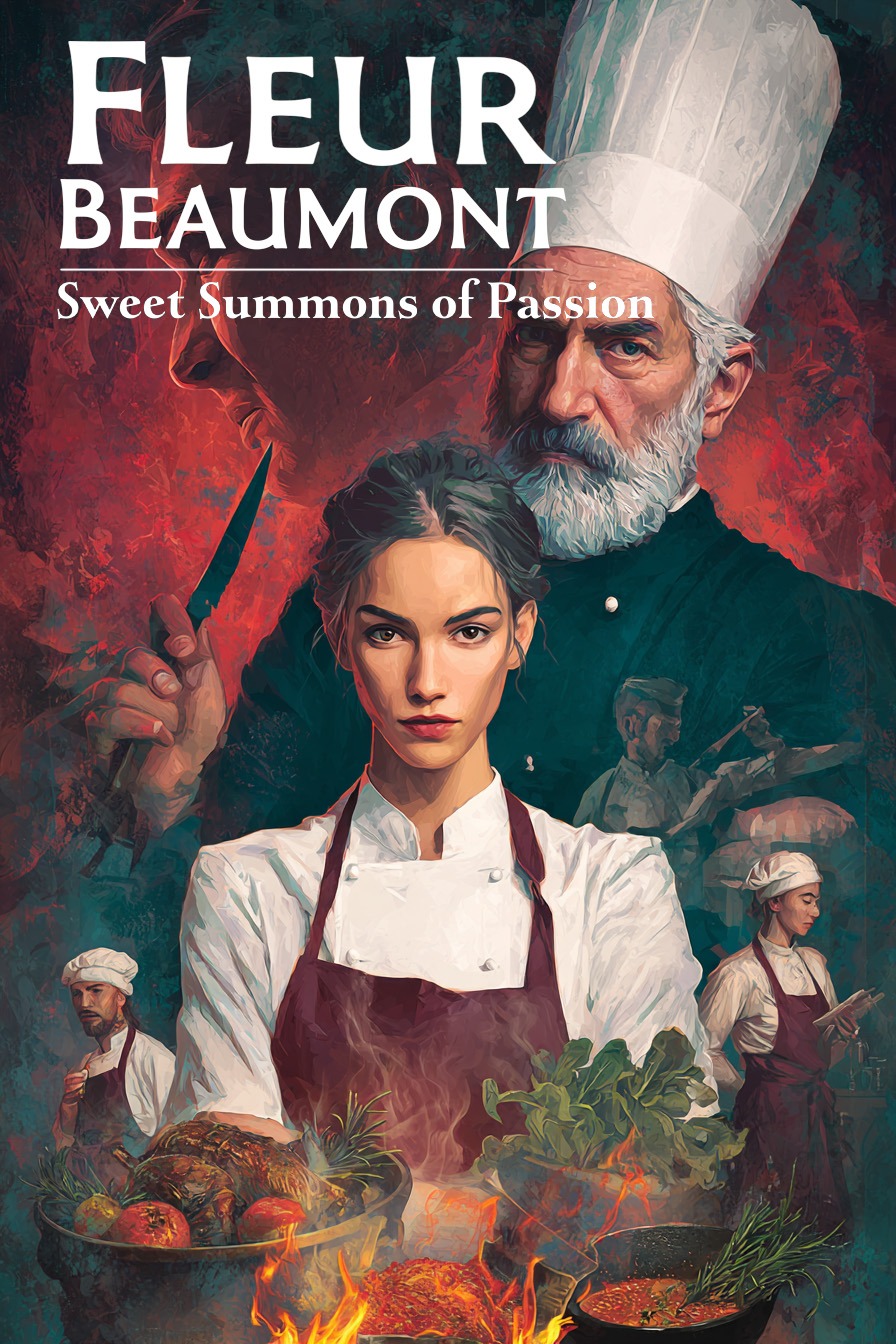Like Roselle Lim's tender food-kissed romances meeting Mia P. Manansala's kitchen cunning, this serves molten chemistry, tactile craft, and high-stakes culinary politics in one decadent bite.
On the fuming lip of Stromboli, where kitchens sweat and tempers run hotter than the lava glow, competitive sugarwork is as lucrative as it is perilous. Twenty-six-year-old Céleste Marot and her scrappy team, the Saffron Wolves, are one burn-scar away from winning the Vesuvius Cup—a televised gauntlet of spun glass, caramel cages, and flame-kissed pastries. But the Wolves need a partner who can temper chocolate with a surgeon’s patience and talk back to a camera, which is how Céleste ends up binding herself to Dante Rinaldi, an infuriatingly gifted Neapolitan chocolatier whose smirk lingers like dark cocoa on her tongue. Their on-screen rivalry is ratings gold; off-screen, it’s gasoline waiting for a spark.
When a midnight fireworks rehearsal goes wrong and torches Céleste’s apartment above Pasticceria Marot, she’s forced to accept a hush-hush consultancy with Luca Varzeni, the island’s most enigmatic food-tech magnate. Varzeni’s unsettling fascination with Céleste’s heirloom Bourbon vanilla cuttings—smuggled decades ago from Réunion by her grandmother—sets whisk to bowl on a scheme that could lock independent kitchens out of Sicily’s sugar supply and ruin everything the Wolves have flambeéd to build. As Céleste and Dante trade heat in steel prep rooms and on black-sand beaches, they’re dragged into a maze of nondisclosure clauses, backroom council votes in Lipari, and recipes that carry more power than any contract. Steamy confessions, sabotage disguised as mismeasured gelatin, and a ruthless bid for culinary control collide in a finale where the last reveal isn’t plated on porcelain—it’s a truth that could scorch or save the future they’re both suddenly daring to taste.
